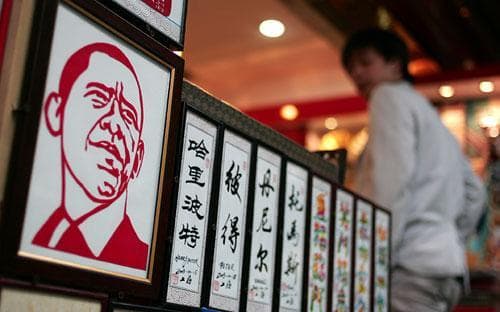Advertisement
President Obama Goes to Asia
Resume
President Obama, on his way to a week in Asia today. A quick stop in Alaska, then Tokyo, Singapore, Shanghai, Beijing, and Seoul, South Korea.
Every stop has its agenda. Bucking up old allies. Talking trade, military bases, America’s commitment in the Pacific.
And at the heart of it all, Washington’s dance with China. Our “vital partner and competitor,” as the president calls it.
Obama will be face to face with China’s top leaders. They build, we buy. They lend, we borrow. It’s a giant relationship at the heart of the world economy.
This hour, On Point: The president goes to Asia.
You can join the conversation. Tell us what you think — here on this page, on Twitter, and on Facebook.Guests:
Joining us from Washington, D.C., is James Fallows, national correspondent for The Atlantic. He's covered East Asia for more than two decades, and he just finished a three-year stint living in China. His latest book is "Postcards from Tomorrow Square: Reports from China."
From Lincoln, Neb., we're joined by Susan Shirk, professor at the School of International Relations and Pacific Studies at the University of California, San Diego. She oversaw U.S.-China policy at the State Department from 1997 to 2000, and she founded the Northeast Asia Cooperation Dialogue, a forum that right now is sponsoring high-level talks between North Korea, the United States and others over Korean peninsula nuclear issues. Her latest book is “China: Fragile Superpower."
And from Shanghai, China, we're joined by Shen Dingli, professor and executive dean of Fudan University’s Institute of International Studies, in Shanghai. He’s director of Fudan University’s American Studies program. He's also a fellow at the Asia Society. For a sense of how he sees China-U.S. competition in the coming decades, see his recent paper for the Centre for European Policy Studies.
This program aired on November 12, 2009.